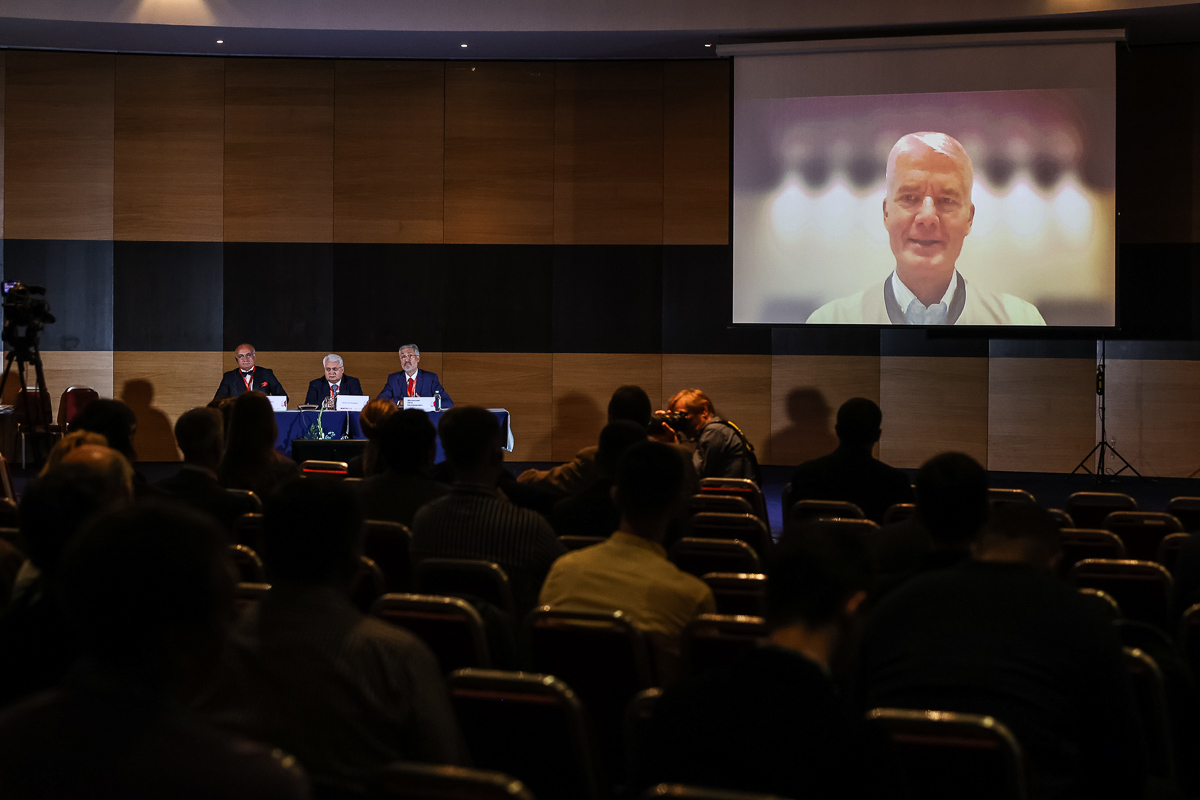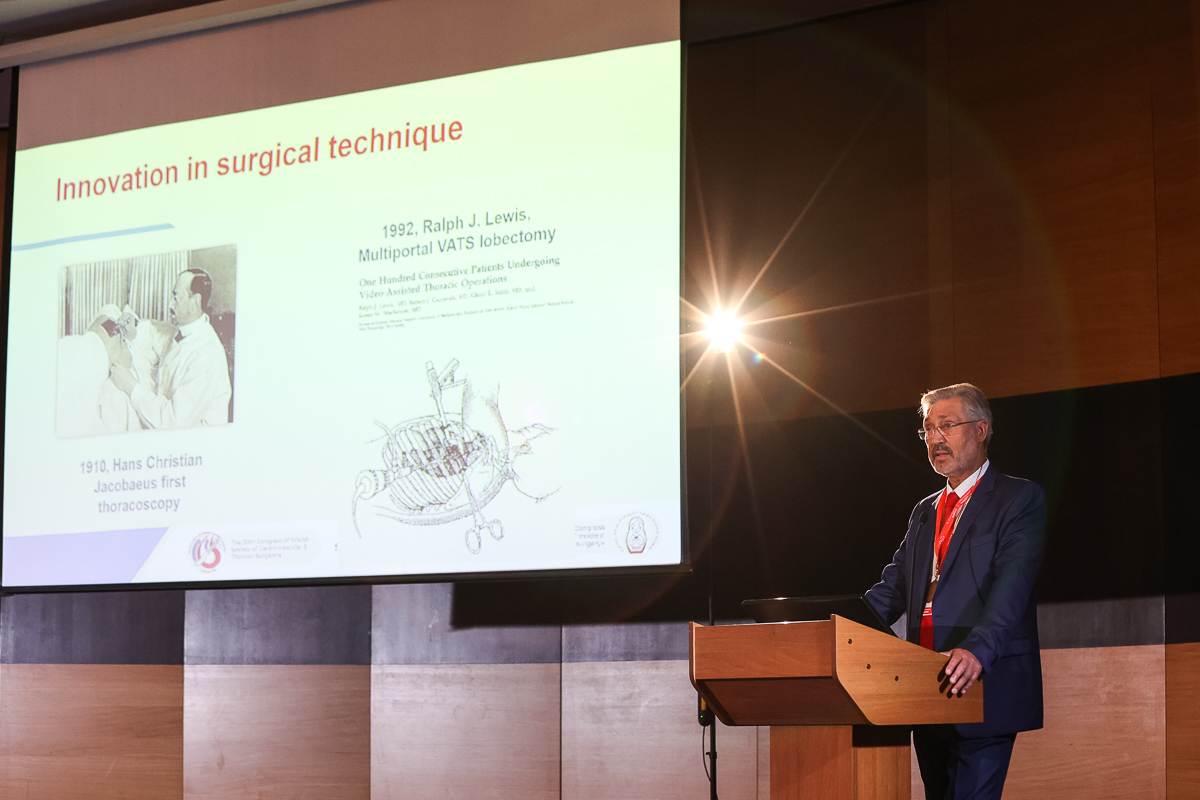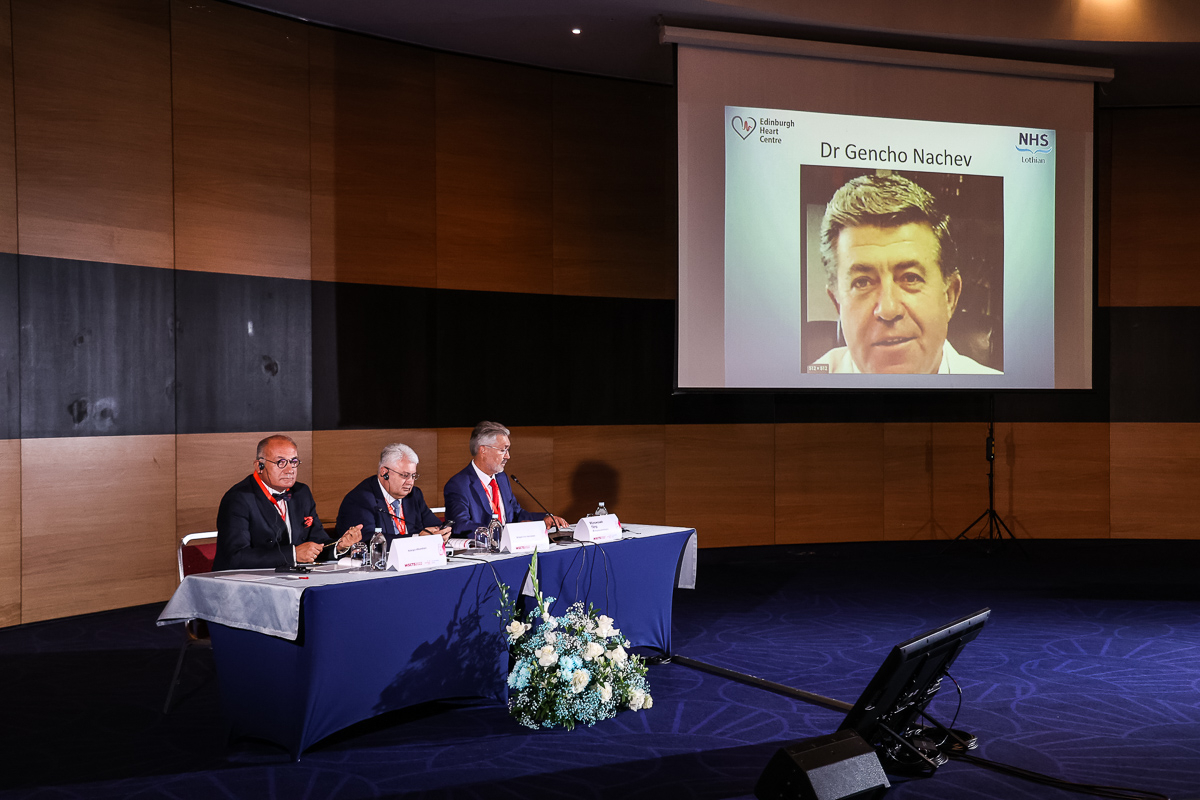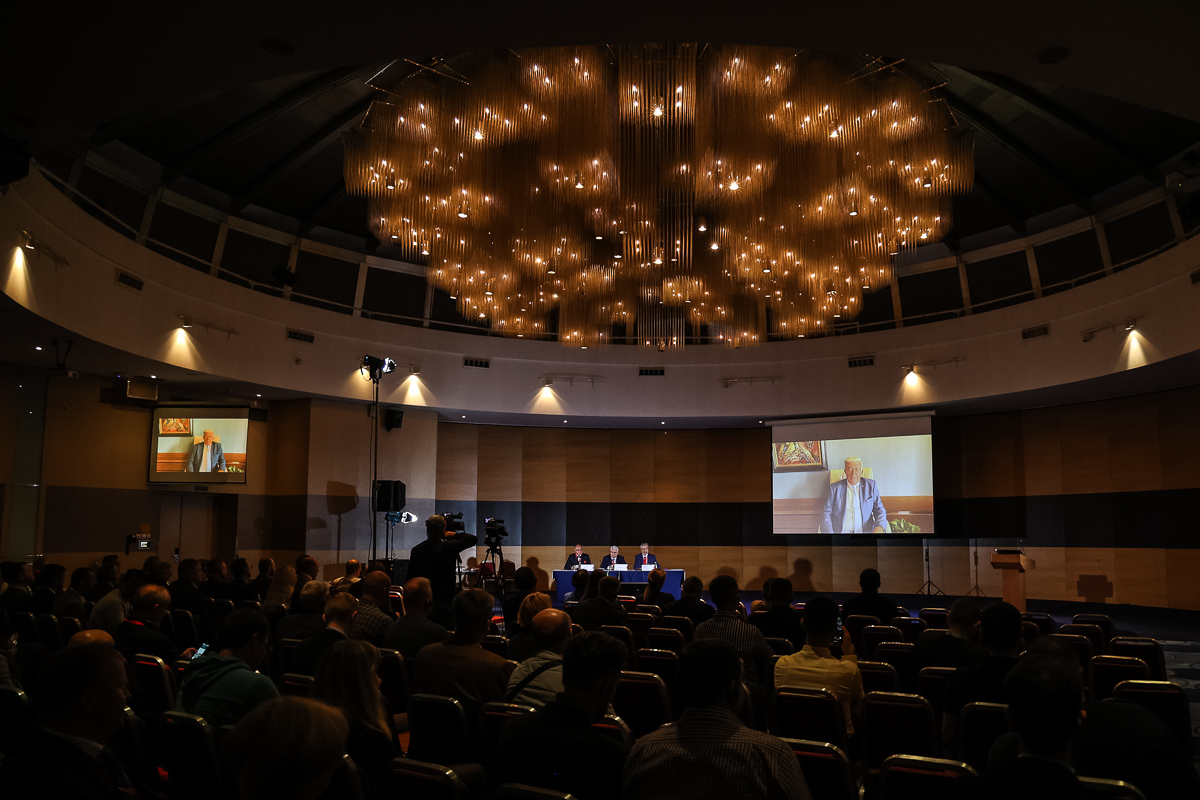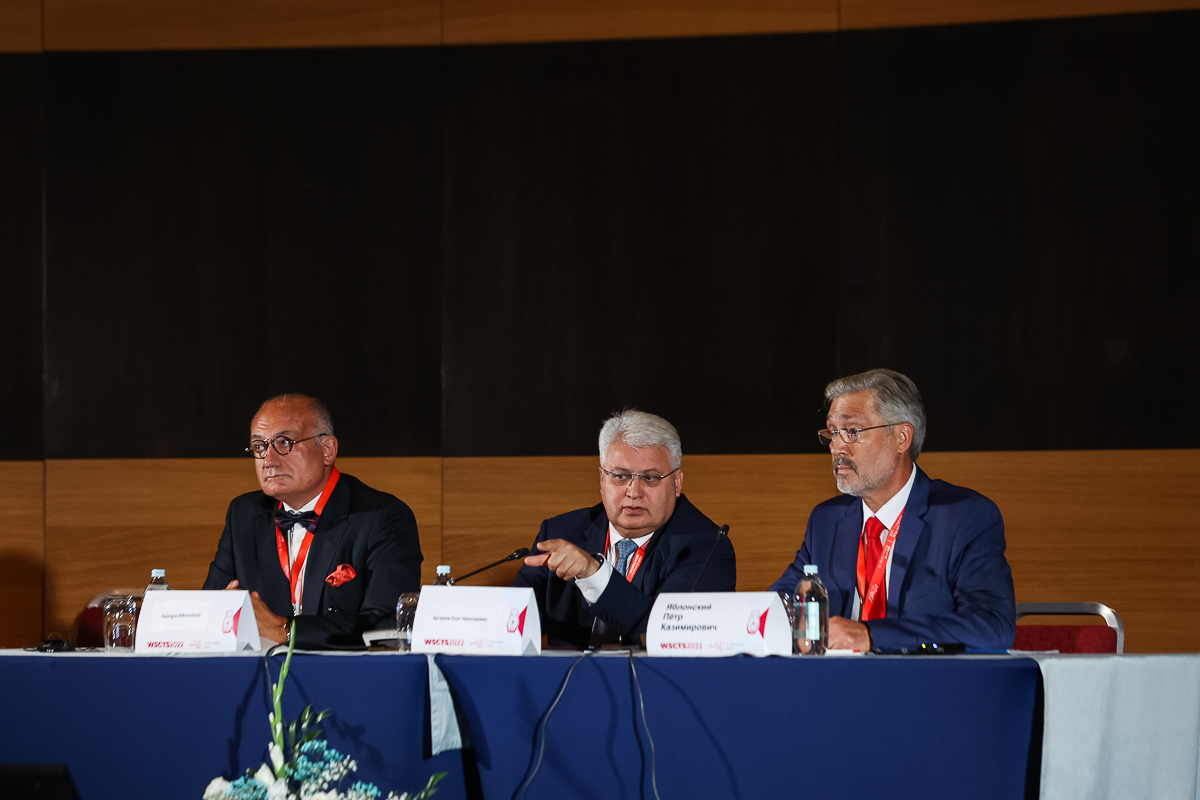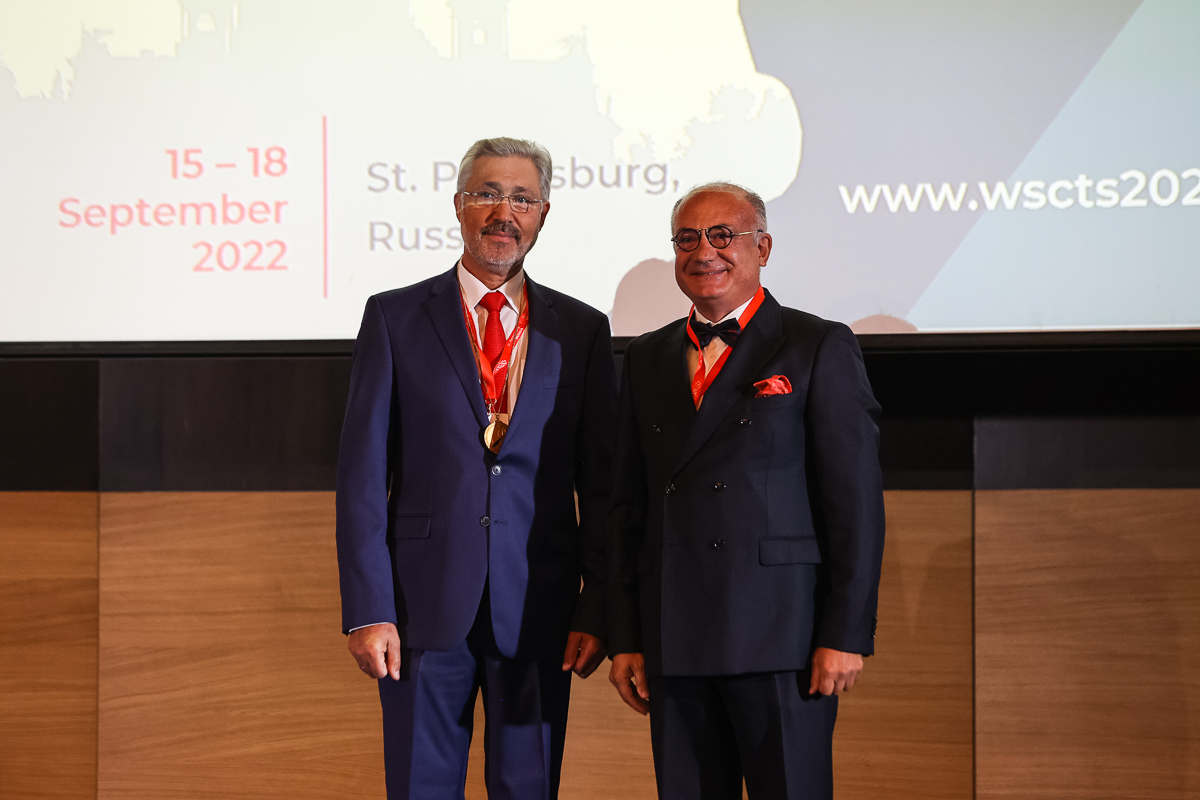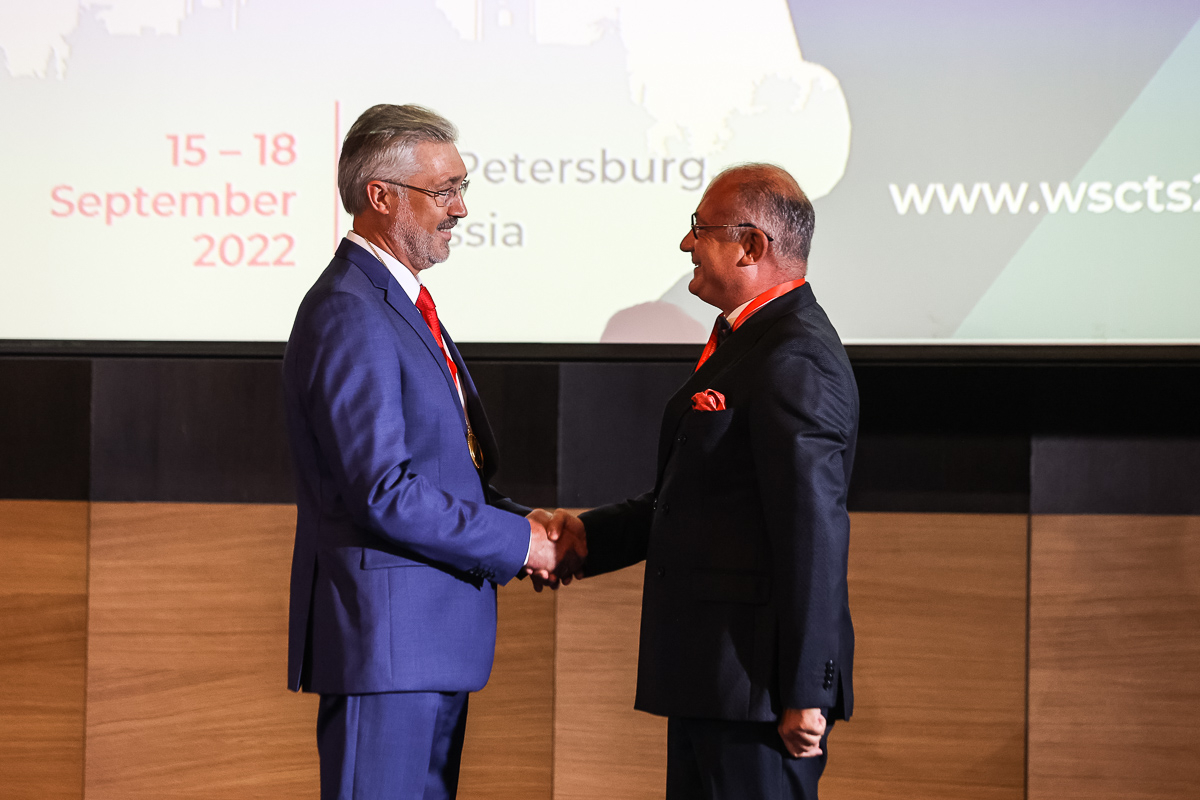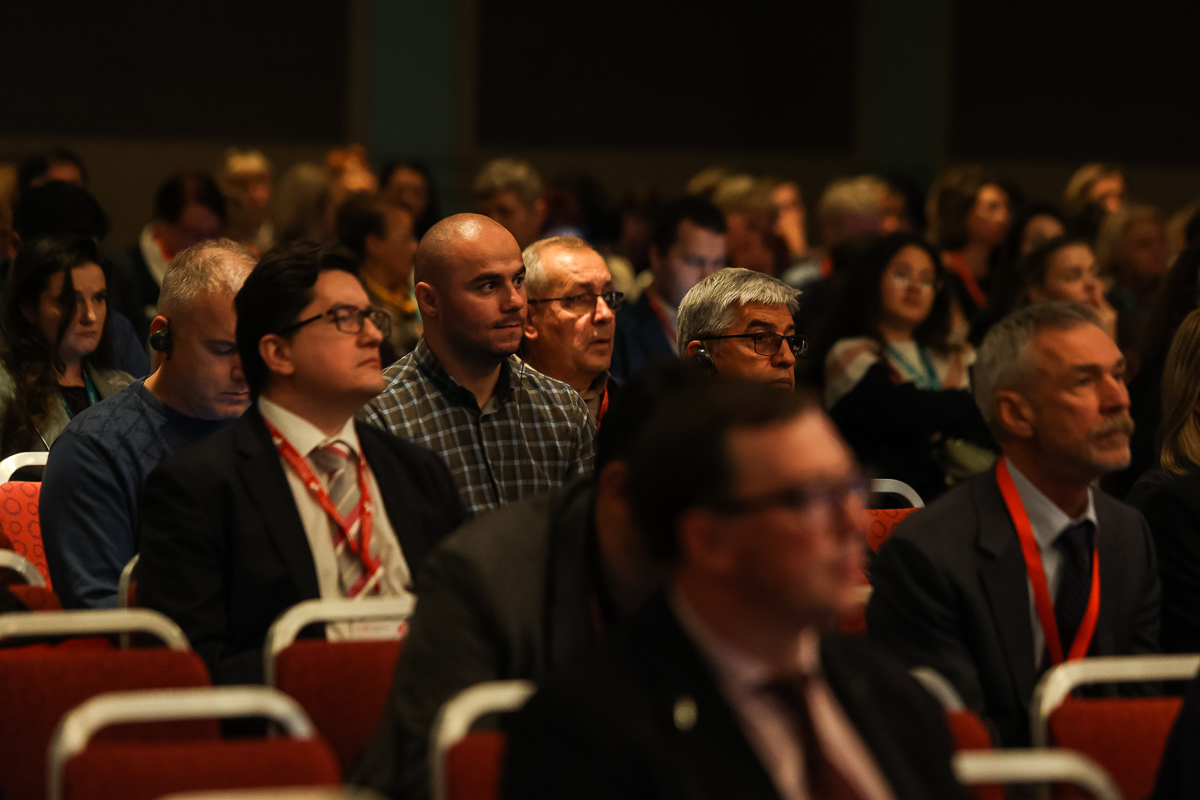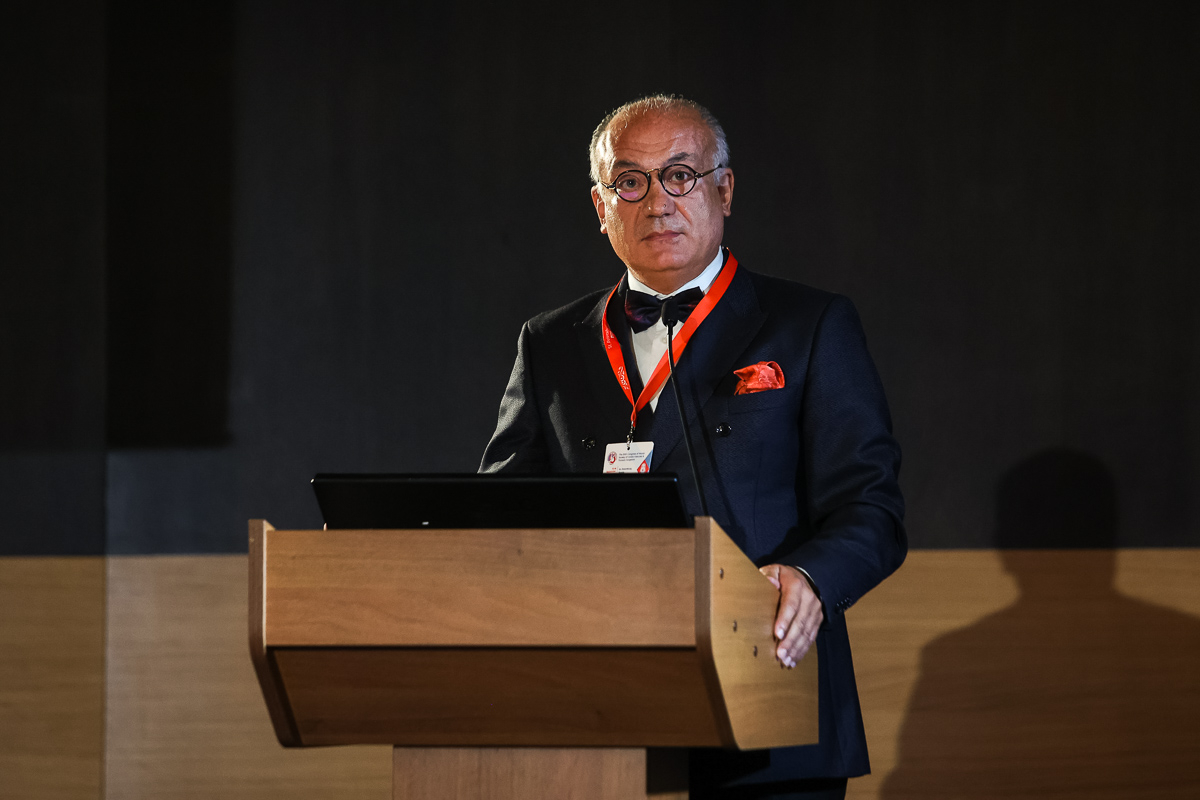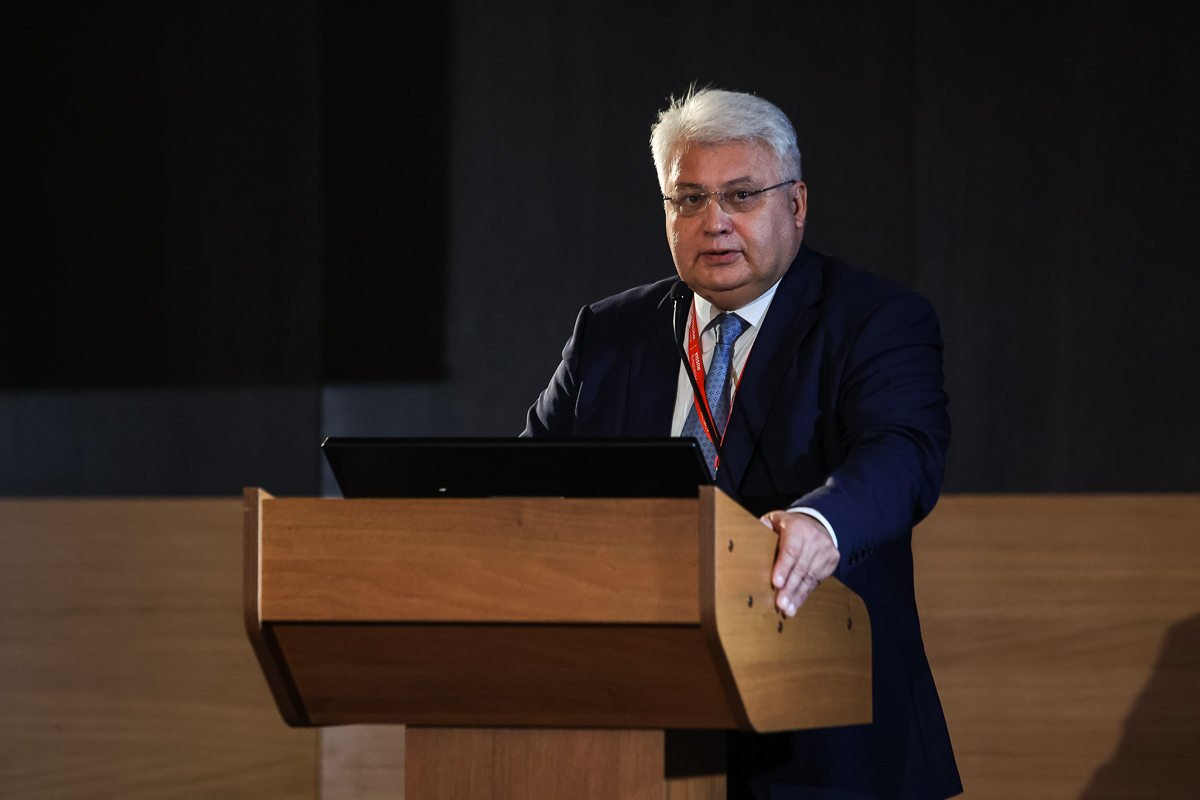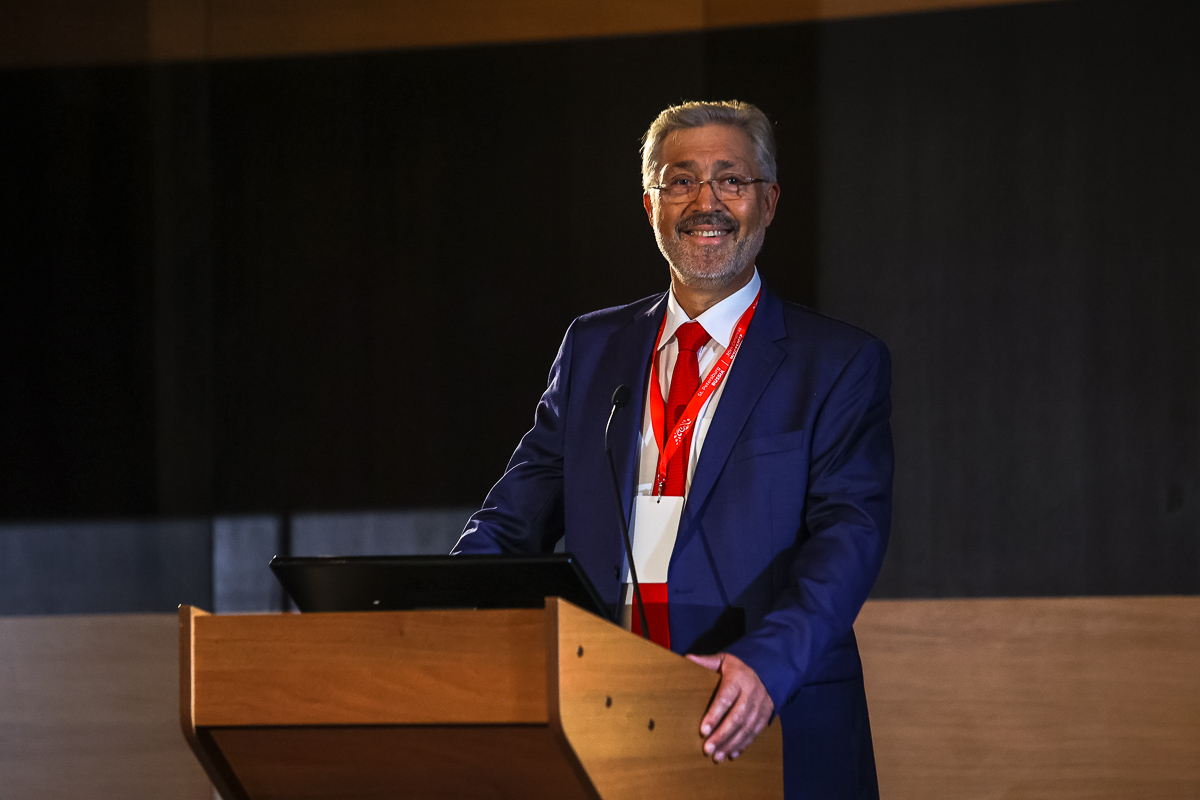Surgeons from St Petersburg University share their best practices with colleagues at an international congress
The 30th Annual Meeting of the World Society of Cardiovascular and Thoracic Surgeons (WSCTS) has concluded in St Petersburg. Over 1,500 experts from Europe, Asia, South and North America, including surgeons from St Petersburg University, have taken part in the event. The congress programme included: live surgical demonstrations and masterclasses by leading surgeons; parallel symposia; and round-table discussions.
The Vice-Governor of St Petersburg Oleg Ergashev addressed the plenary session. He noted that it was for the first time that St Petersburg hosted a congress of the World Society of Cardiovascular and Thoracic Surgeons that brought together experts in the field from Russia and throughout the world.
Issues of cardiovascular, thoracic, endovascular, robot-assisted surgery, transplantology and endovideosurgery are among the most pressing issues of our time. Particular attention is to be paid to artificial intelligence in healthcare. I am certain that the congress will be a next step in the development of cardiovascular and thoracic surgery.
Oleg Ergashev, Vice-Governor of St Petersburg
WSCTS Meetings are held annually in different parts of the globe. The host country for the annual meeting is selected three years in advance by the Chancellor and the Steering Committee, which is made up of the officers of the Society, the Past Presidents and the WSCTS Regional Representatives. In 2017, St Petersburg was chosen as the venue for the 30th WSCTS Annual Meeting.
‘I want to emphasise that for the Steering Committee of the World Society of Cardiovascular and Thoracic Surgeons it was important that WSCTS 2022 should be held in Russia, as planned,’ said Professor Hermann Reichenspurner, Vice-Chancellor of WSCTS. ‘We are scientists and medical doctors. We must stand together in any situation, no matter what is happening in the world. Our main priority is to continue to work in the interests of our patients.’
The Chairman of the 30th Annual Meeting of the World Society of Cardiovascular and Thoracic Surgeons was Professor Piotr Yablonsky, Vice-Rector for Medical Activities of St Petersburg University, Chief External Expert in Thoracic Surgery of the Russian Ministry of Health, Surgeon-in-Chief of the Health Committee of the Government of St Petersburg, and Honoured Physician of the Russian Federation. On the opening day of the congress, the world-famous cardiac surgeon Afksendiyos Kalangos presented a medal, conferred by the World Society of Cardiovascular and Thoracic Surgeons, on Professor Yablonsky in recognition of his contributions to thoracic surgery.
I thank you for the recognition and award. I will do my best to meet your expectations. Today, despite the tense political situation, I urge you to follow the best traditions of the World Society of Cardiovascular and Thoracic Surgeons and stand together, setting examples of professional unity and solidarity. Our calling is to serve people by saving lives!
Piotr Yablonsky, Vice-Rector for Medical Activities of St Petersburg University, President of the 30th Annual Meeting of the World Society of Cardiovascular and Thoracic Surgeons
At the plenary session, Professor Yablonsky made a keynote presentation on the development of cardiovascular and thoracic surgery. He noted that the beginning of the 21st century was marked by unprecedented developments in medicine. This period saw: a remarkable progress in endoscopic surgery; the evolution of radiology from X-rays to modern imaging methods; the introduction of new and innovative, less traumatic surgical techniques; as well as the rise of robot-assisted surgery.
Currently, the most common procedures that surgeons perform are those involving: the removal of tumours; surgical treatment of infections and injuries; surgical corrections of congenital diseases; and mitigation of unintended consequences of surgical interventions. It is not infrequent that a surgical patient requires multiple surgeries to deal with a number of the aforementioned issues, for instance, cancer and postoperative infectious complications. According to Professor Piotr Yablonsky, an interdisciplinary approach is required to improve such patients’ outcomes, with the involvement of surgeons and other health professionals from different disciplines, working collaboratively as a team. He also added that in order to reduce surgical risks and improve surgical outcomes, we should focus on: implementation of new tools and techniques; adoption of artificial intelligence methods; and further development of anaesthesiology. Reflecting on the future of surgery, Piotr Yablonsky predicted that in future, the number of simultaneous, concurrent or overlapping surgeries, that is, situations where two surgical procedures are happening at the same time, will increase, and minimally invasive surgical techniques will continue to develop.
Experts from the best medical centres across the globe shared best practices with colleagues at the 30th WSCTS Annual Meeting. Thus, Dr Gleb Kim, a cardiovascular surgeon at the Pirogov Clinic of High Medical Technologies at St Petersburg University, made a presentation on epiaortic ultrasound scanning during coronary artery bypass grafting. Dr Kim emphasised that the inclusion of this technique in the surgical protocol allows for reducing of postoperative neurological complications.
Acute cerebrovascular accident, or stroke, during or soon after heart surgery is one of the most devastating complications of coronary artery bypass graft (CABG) surgery. The incidence of perioperative stroke in CABG surgery is 1.5 to 3%, with 30% to 40% of patients having this complication. The postoperative mortality for patients who had a stroke during or soon after CABG surgery can reach 30%.
The pronounced changes in the aorta can cause embolism when an embolus severely blocks the flow of blood. Since surgical manipulations are performed in this exact zone, the surgical risks are very high.
Dr Gleb Kim, cardiovascular surgeon at the Pirogov Clinic of High Medical Technologies at St Petersburg University
Dr Kim explained that preoperative evaluation of aortic calcification by computed tomography has been used in clinical practice to avoid these complications since the late 20th century. Additionally, surgeons use transoesophageal echocardiography and epiaortic ultrasound scanning for the perioperative diagnosis of aortic pathology.
According to international recommendations, in complex aortic pathologies, surgical manipulations in aortic zone must be minimally invasive. It is recommended that ultrasound scanning should be used to assess the presence and severity of atherosclerosis in the ascending aorta. Intraoperative ultrasound can provide real-time diagnostic information in surgery that has the potential to alter the surgical treatment strategy and decrease the risk of postoperative stroke.
‘Thanks to the modern-days diagnostic imaging methods, we do not have to walk a tightrope over the abyss as often as before,’ said Dr Gleb Kim, cardiovascular surgeon at the Pirogov Clinic of High Medical Technologies at St Petersburg University. ‘Ultrasonography is an ideal intraoperative imaging tool because it takes a few seconds and is available in every operating room. You just need an ultrasonic sensor and an understanding of what you are doing.’
Earlier, Dr Gleb Kim developed a neural network that, using the database of the encoded medical histories of patients, can predict the development of cardiovascular diseases and also give recommendations for their treatment.
The 30th Annual Meeting of the World Society of Cardiovascular and Thoracic Surgeons was supported by: the Ministry of Health of the Russian Federation; the Government of St Petersburg; St Petersburg University; St Petersburg Research Institute of Phthisiopulmonology; the Association of Thoracic Surgeons of Russia; Russian Nurses Association; and the Hannover Medical School (Germany). Among the participants are delegates from: the USA; Great Britain; Israel; Canada; Austria; Germany; Switzerland; France; Belgium; Italy; Spain; Greece; Bulgaria; Serbia; Bosnia and Herzegovina; Türkiye; Belarus; Armenia; Uzbekistan; Kazakhstan; Moldova; China; India; Vietnam; Thailand; Malaysia; Brazil; and Japan.
Within the framework of WSCTS 2022, medical experts from St Petersburg University made presentations, performed live surgeries and took part in a satellite symposium "Fundamental Science −Cardiothoracic Medicine", organised by St Petersburg University. There they discussed the pathogenesis of atherosclerosis, tissue engineering and other key issues of cardiothoracic surgery.
Throughout the 30th WSTCS Annual Meeting, an exhibition of medical achievements was held at the event venue. The University’s display was focused on the connection between St Petersburg University and medicine from the establishment of the Infirmary at the Higher (Bestuzhev) Women’s Courses to first University hospitals to the present day. The visitors to the exhibition could learn about: famous alumni of St Petersburg University — Nobel Prize winners in physiology and medicine Ivan Pavlov and Ilya Mechnikov; the Karl Baer Prize established in honour of the founder of embryology and comparative anatomy — Karl Ernst von Baer; advances in medical technologies; and the advantages of studying medicine at St Petersburg University. At the University’s exhibition stand, there was also a presentation of rare medicine books from the collection of the M. Gorky Scientific Library at St Petersburg University.


